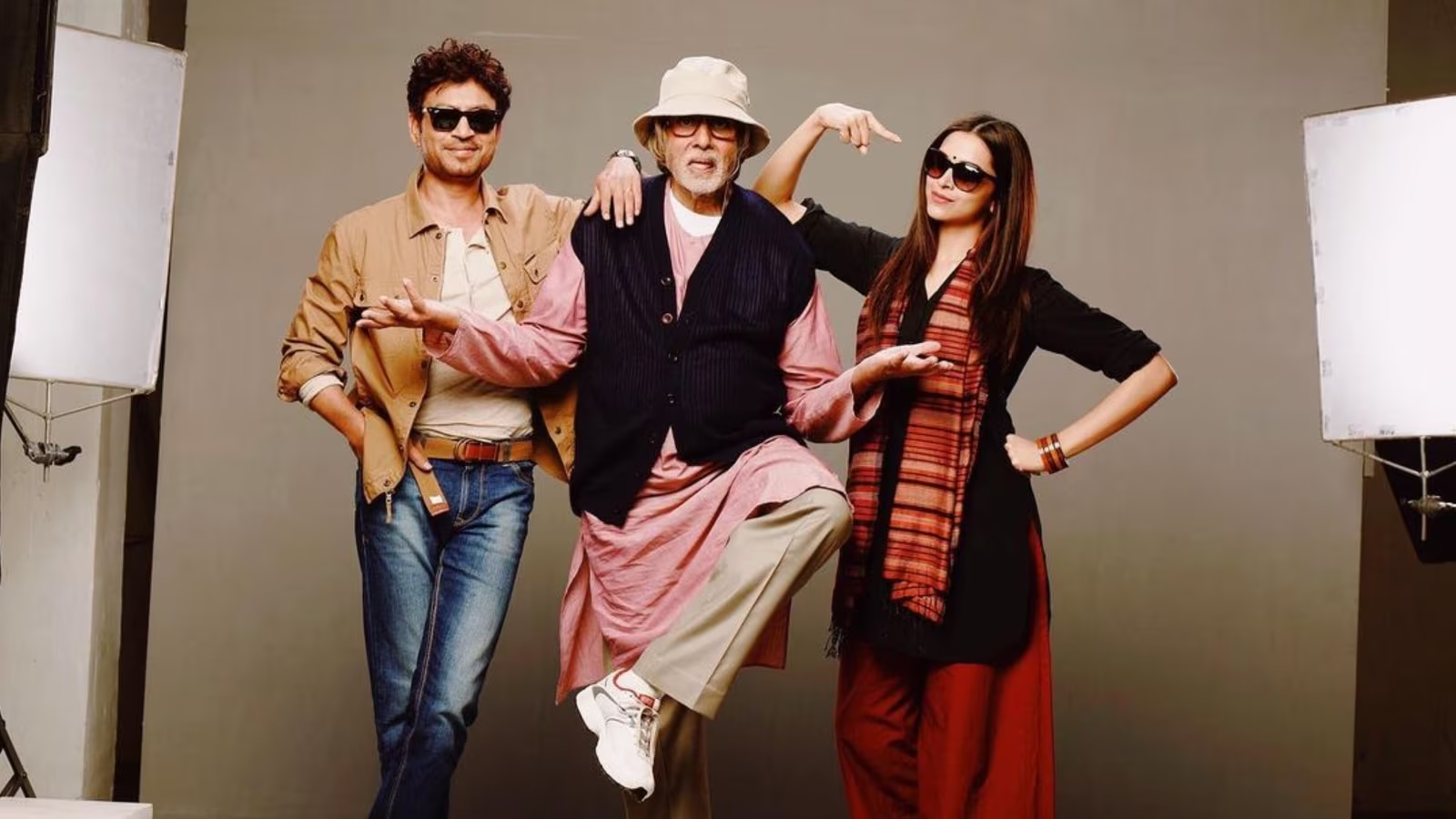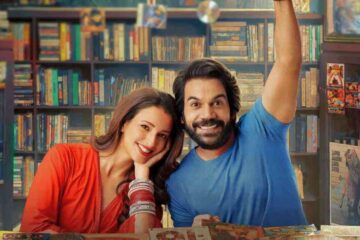Although it lacks grandiose themes and characters, dramatic shifts, or spectacular locales, Piku captivates by steering clear of typical cinematic clichés and providing sincerely heartfelt moments and characters.
Seasons, much like life, sneak up on you when you least expect them. One moment, you’re reaching for your sunglasses; the next, you’re huddled under a blanket, wearing three layers. This movie finds itself firmly entrenched in this in-between place where we’re confronted with deciding between style and substance.
We call it the cozy sock zone.
Hear us out before you fling off your worn-down-to-the-heel pair and launch them at me. It’s a term meant to convey our utmost affection for these weapons of mass comfort. I’m talking about those warm, oversized, fleece-lined, soft socks that are like a second skin throughout the cold months — denial is futile; we all have that one pair that will never see the light of the day, but when we’re indoors, they are our go-to reservoir of happiness — helping us cope with change and assuring us that we’ll make it to the other end. They may not be appealing to look at or have use for the rest of the year, but when it is cold and gloomy outside, and we need something to warm us from the inside and make us feel all gooey and loved, they step up.
If the cozy sock zone had a face, it would be Piku.
This movie sparked some polarizing views, not only for what it says but also for how it goes about it. And that’s what’s so winning about this gem: the chutzpah to come out and express its feelings in a way that instantly hits home. That’s why, for many, there’s never been any doubt about this Amitabh, Deepika, and Irrfan starrer. It’s the cinematic equivalent of warm French toast with maple syrup on a chilly weekend morning or a cup of hot chocolate after a heavy dinner as you watch a late-night movie curled up with loved ones.
Piku might not blow you off your feet with its topic or first look, but if you persist, you’ll be rewarded with characters, themes, and a story that warms your core and brings a smile.
So, let’s dive into why we love Piku as much as we love our cozy, quirky socks.
Piku in a Nutshell
The narrative revolves around three characters:
Piku is an intimate, clever, and life-affirming story about the complex relationship between an adult daughter and her aging but persistently vital father.
Piku, the titular character played by Deepika Padukone, is an architect and co-owner of a firm in Delhi, where she lives with her father, Bhaskor Banerjee (Amitabh Bachchan). She is constantly stressed as she tries to manage all her responsibilities while making ill-fated, sporadic attempts at a romantic life.
Her retired and widowed father spends all day obsessing about his constipation and graphically discussing it with everyone. Bhaskor is irascible and prides himself on his critical nature and brutal honesty. He is a champion of his daughter’s independence, particularly insofar as it allows her to devote more time to him.
On a whim, he insists that they visit their home in Kolkata by car, as planes and trains will undoubtedly aggravate his bowels. Here enters Rana Chaudhary (Irrfan Khan), the owner of the taxi company, who steps in to drive them when none of his employees are willing to subject themselves to a road trip with these notoriously difficult clients. Rana slides right into their familial dynamic.
This basic plot is the premise for an organic bonanza of unforgettable dialogue that moves rapidly between Hindi, Bengali, and English. The ensemble cast is superb, but Padukone is by far the star of this film. She beautifully captures the delicate balance between loving devotion and utter exasperation that typifies filial responsibility.
Also Read: The Power of Three: Bollywood’s Best Friendship Movies
Love Flows Beneath the Surface
Where Piku excels is in showing us the many faces of love. Truly caring for someone can be heartfelt without being pretty. It can be a pain, but it doesn’t mean we’d rather do anything else.
Bhaskor, who struggles with constipation, lives with his daughter Piku. He is a rigid and self-centered man. Although he doesn’t object to his daughter’s casual romantic relationships, he opposes her marriage, fearing she might abandon him.
Piku, a self-reliant woman, is open to marriage but not at the expense of her father’s well-being. She believes it’s her duty to support him as he ages. Remarkably, she openly discusses her father’s health issues without concern for others’ reactions. While Piku appears modern and practical, she maintains a deep connection to her traditions.
Rana is a man caught between his values and the attitudes of his mother and sister, whom he cares for despite their differences. Known for his integrity and a deep sense of justice, he harbors a quiet affection for Piku. Even when Piku is occasionally harsh, Rana overlooks it, seeing her good nature.
Initially, the characters Piku and Bhaskor might not seem appealing due to their harsh or rigid behaviors. However, their deeper personalities and thought processes become evident as the film unfolds. By the film’s conclusion, they become endearing to the point that their story lingers in the mind long after.
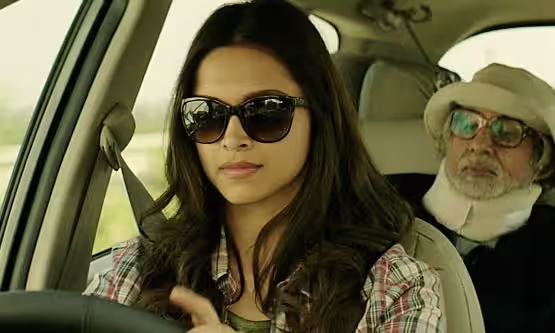
Circle of Life
The movie beautifully captures the overlooked element of circularity in our lives. The central theme is the reversal of roles between a parent and child as they age. The dynamic shifts as the caregiver becomes the care receiver, and the authority to refuse or permit actions passes from one to the other. This role reversal emerges gradually throughout the film, becoming more apparent towards the end.
Bhaskor, much like a child, constantly seeks attention, often under the guise of being a hypochondriac. His possessiveness over his daughter is evident, along with a subtle undercurrent of fear—the fear of being left alone. His insecurities are revealed through bouts of almost childlike emotional manipulation.
This is finely balanced by the gravitas and depth Piku brings in managing and handling Bhaskor’s tantrums and rants in a zen-like manner. These subtle nuances make the film exceptional, filling one with a warm, tingling feeling of having watched something special.
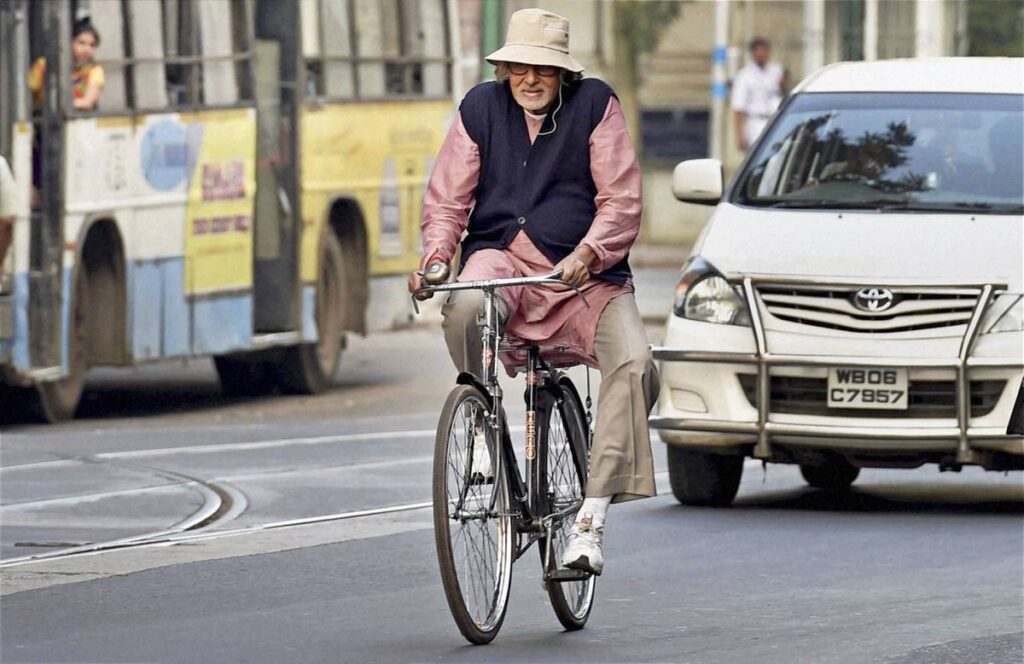
Beauty in the Ordinary
In fact, it’s not just the three central characters; rather, the whole ensemble cast resonates with an exceptional sense of normalcy, making the viewing experience akin to spending time with a vast, extended family. Don’t be surprised if you see reflections of people and relatives you know in the characters on screen. Everyone has that forthright uncle, the frank Mausi, and the family doctor who has known you all your life.
This is what the movie does so well: celebrating the unique blend of chaos and harmony found in Indian families—and perhaps families everywhere—as they embrace the quirks of their members.
Love in All its Forms
Piku explores the dynamic between an aging father who relies entirely on his daughter. Shoojit Sircar, who previously directed films like “Madras Café” (2013) with John Abraham and “Vicky Donor” (2012) featuring Ayushmann Khurrana, once again demonstrates that a film can be captivating without resorting to exaggerated, unrealistic elements.
What we found particularly compelling about Piku was its departure from conventional romantic narratives. Despite being paired with Rana Chowdhry (played by Irrfan), a man she initially dislikes yet who seems to understand her deeply, the story avoids evolving into a predictable romance. Unlike typical romantic plots where opposites attract and resolve their differences in dramatic fashion, Piku ends on a more subtle note. The climax of their interaction is not a romantic union but a playful exchange of badminton racket taps that signifies a budding friendship, steering clear of the clichéd fairy-tale ending. This nuanced portrayal adds depth to their relationship, highlighting a mature, evolving understanding rather than a sudden romantic culmination.
Simple Things Done Well
The charm of Piku is not so much in its plot, which is straightforward and devoid of any shocking twists, but in how the story is presented. The film illustrates that complex plots aren’t necessary to capture the audience’s emotions. What matters are the stellar performances by the ensemble, the perfectly cast group of characters, and the subtle, effective direction, which makes even a predictable story deeply engaging.
Juhi Chaturvedi’s screenplay resonates particularly with those who have cared for aging parents. Deepika Padukone’s portrayal connects deeply as she navigates the challenges of her father’s temperamental moods and health worries. While it can be frustrating to handle their quirks on a daily basis, the slightest hint of their failing health spurs a rush of protective affection, eager to return them to their usual spirits.
Throughout the film, despite the father’s constant focus on his health issues and the pretense of not aging, the deep bond of love between him and his daughter is palpable, enriching every scene with genuine emotion. She loves him dearly, even as he remains consumed by his conditions.
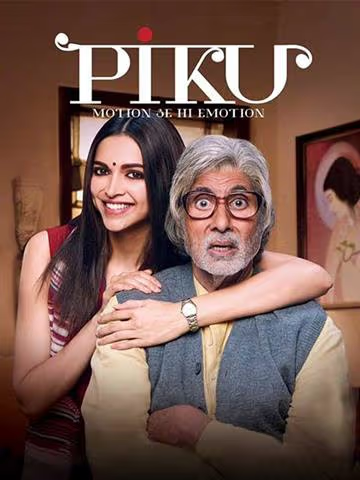
Life, Love, and So Much More
Ultimately, Piku is more than just a story about a father and daughter; it explores deeper themes such as heritage, unconditional love, and navigating life’s complexities. The film beautifully blends humor with everyday life, leaving viewers wanting more.
It resonates because it captures the messiness of life we’ve all experienced so well. Raise your hand if you have one of these — the aunt who talks incessantly regardless of the situation, the relative who harbors quiet bitterness, the bickering sister, the loyal servant who’s been with the family for as long as you can remember, and so on.
Above all, the film makes us think of our parents, sometimes exasperating individuals we think we can’t endure until we face the prospect of living without them. A poignant scene where Piku becomes emotional after Bhaskor falls ill might remind you of times when you underestimated someone’s complaints until a real crisis occurred, leaving you grappling with fear and regret. A memorable line from Piku sums it up: we shouldn’t judge our parents.
Sometimes, movies, like a cozy pair of warm socks, are a way to escape life’s changing weather. They might seem ordinary, but they perform a vital function: cocooning us and providing the warmth and affection we need.

